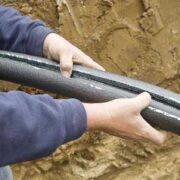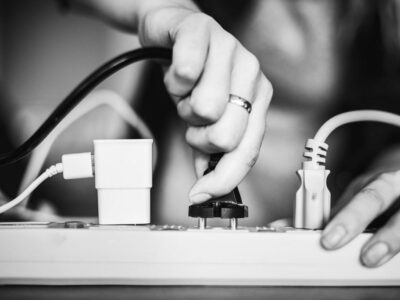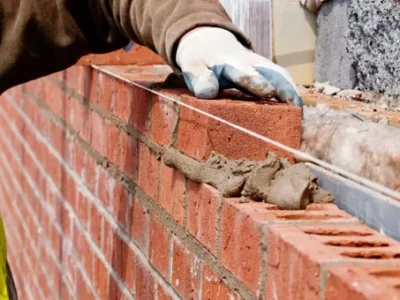You might not have thought much about the air quality in your house before the pandemic. However, the COVID-19 pandemic has brought to light the importance of keeping your home as safe and clean as possible. Air quality can have a bigger impact on your health and overall well-being than you might think.
Minor impacts of poor indoor air quality include headaches, dizziness, and irritation of your throat, nose, and ears. More serious effects may include respiratory diseases and cancer. So, it’s crucial to maintain good indoor air quality at home.
If you don’t know where to get started, here are some ideas you can consider:
1. Invest In A Whole-House Air Purifier
Sometimes, your central heating, ventilation, and air conditioning (HVAC) system can be at the root of issues, especially if the ducts are dirty and there’s already mold buildup. But, your HVAC system may run more efficiently once you decide to install a whole-house air purifier. You can also use an air purifier with a humidifier. To get more information, visit this recommended site.
There are some things air purifiers can do, and these include:
- Reduce chemical emissions and odors
- Kill viruses, mold, and bacteria
- Reduce pet dander, pollen, and dust
The best thing about a whole-house air purifier is that it isn’t as expensive as you think. Plus, it provides you with real benefits, enabling you to enjoy better indoor air quality.
2. Get Some Houseplants

Ficus green leaves on the background ceiling air conditioner in modern office or at home. Indoor air quality concept
Choosing the best indoor plants won’t only help you maintain good indoor air quality at home, but they’re also an excellent way to add visual interest and life to any space. They can also help increase the oxygen level inside your house and purify the air.
At present, there are many houseplants you can consider, and these are:
- Rubber tree
- Spider plant
- Snake plant
- Areca palm
- Chinese evergreen
- Aloe vera
- Pothos
If you’re new to houseplants, your best bet is pothos on your plant shelves. You don’t need to be a green thumb to keep this plant alive. It thrives on any level of lighting and requires low maintenance. The only thing you should do is put it in a bigger pot.
3. Change Your Air Conditioning (AC) Filter
AC systems are working to provide your home with that ideal temperature all year round. However, while doing that, they’re also filtering out the common air pollutants. Over time, the air filters may stop doing their job efficiently when filled with dust and dirt.
It won’t only affect your indoor air quality, but it may also wear down your unit, which can result in expensive repairs down the road. Therefore, make sure to change your AC filters regularly. If possible, consider availing yourself of an AC service plan that includes a filter change, particularly if you’re prone to allergies or living in an area with high pollution levels.
4. Reduce Indoor Pollutants
Some indoor pollutants may affect your home’s air quality. Some may come from secondhand smoke, while others, like radon, may occur naturally. Fortunately, there are ways to minimize dangerous particles, which include:
- Avoid Aerosols – Aerosols may affect your indoor air quality, such as spray cleaners and hair sprays. So, find alternatives that don’t use aerosol applications.
- Use Ventilation When Cooking – Before you cook, consider cleaning off your range or stove to avoid releasing old baked-on particles into the air. Dust, oil, and old food residue may be released into the air once heated. If you’re using a range hood, use it every time you use the oven or stove. If not, you can use the back burners closest to your range vents to suck up particles released when you’re cooking.
- Control Humidity In Your House – Moist and humid conditions breed mildew and mold that may trigger respiratory problems like asthma and allergies. Depending on your location, the summer months may bring about humid conditions. Lessen the moisture in the air and curb mold growth using dehumidifiers. There are also various humidifier options to maintain consistent humidity levels and create comfortable living conditions in your house.
5. Open Your Windows
Another easiest way to keep your air quality clean and free from pollutants is by opening your windows, which can be vital during the holiday season. However, it’s tempting to keep the windows tightly closed when the humidity level is high. So, be strategic when opening your windows.
For example, if you live near a busy road, keep the windows closed when there’s traffic. If you’re suffering from hay fever, never open your windows in the morning as it’s the time when the pollen is at its highest peak.
Wrapping Up
Whether you’re living in a bungalow or an apartment, there are various ways you can improve and maintain the good air quality in your home. By making a few upgrades and adopting regular cleaning habits, you can do a lot to keep your house uncontaminated and free of air pollutants.














[…] avoid buying a new AC prematurely. It’s prudent to check the filters regularly to enhance the air quality in your home. Ideally, you should clean the filters every month since clogged filters can lower HVAC […]